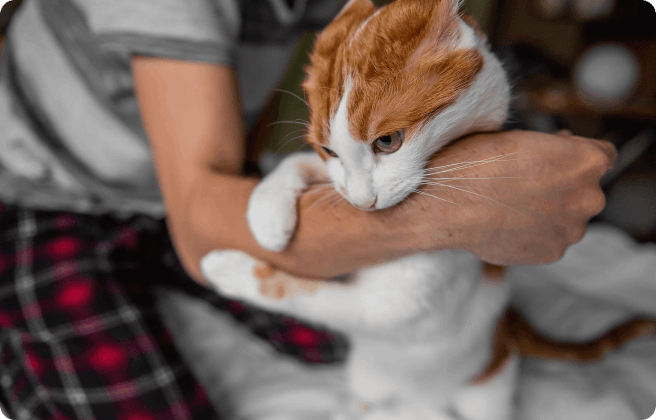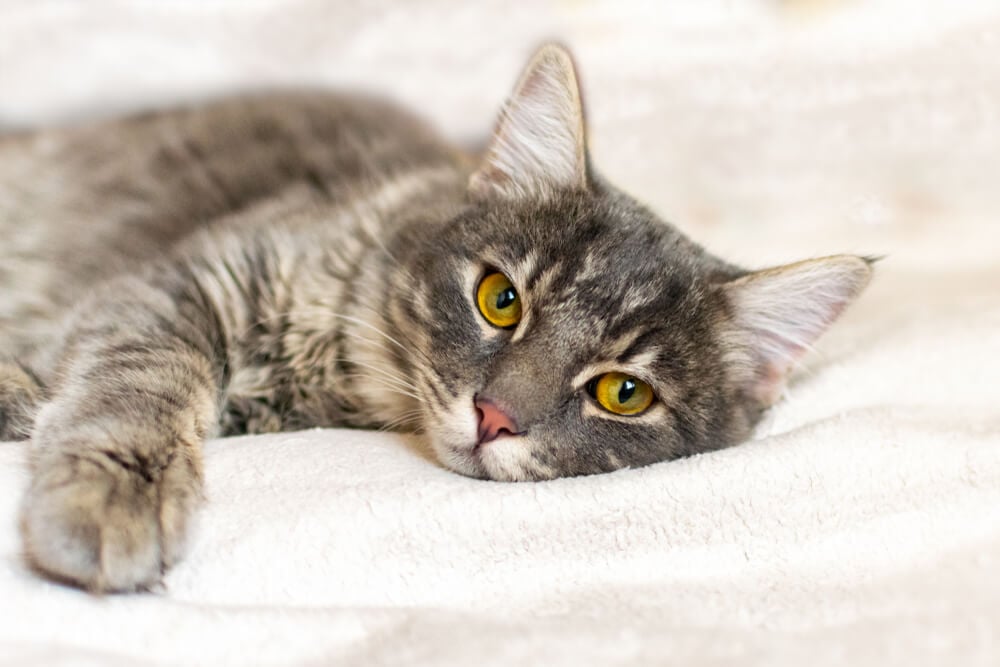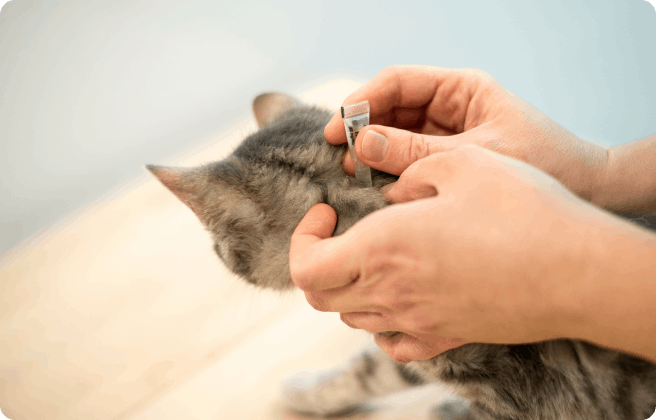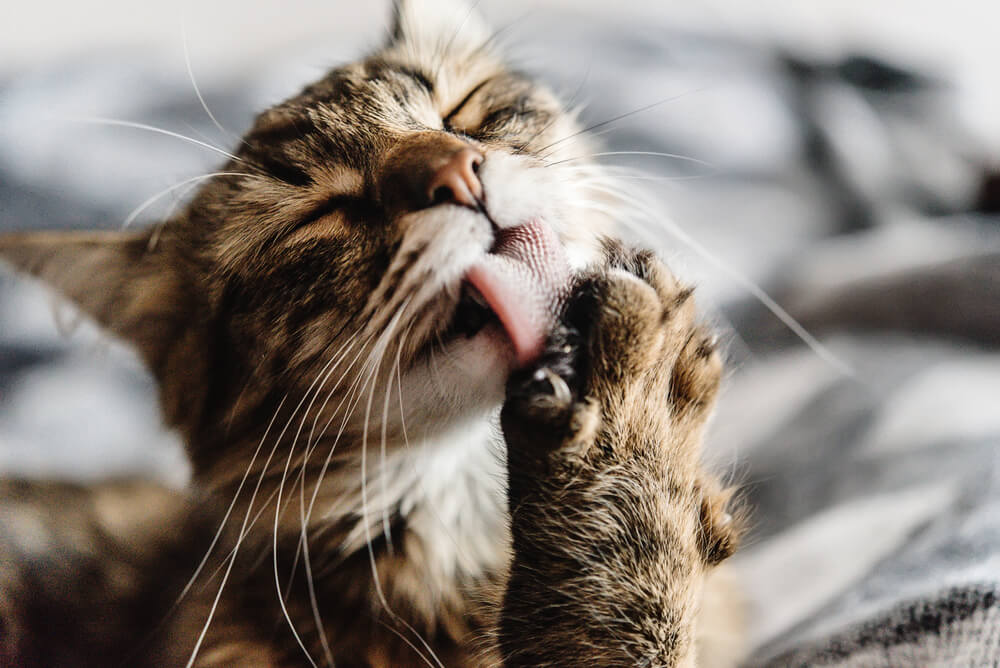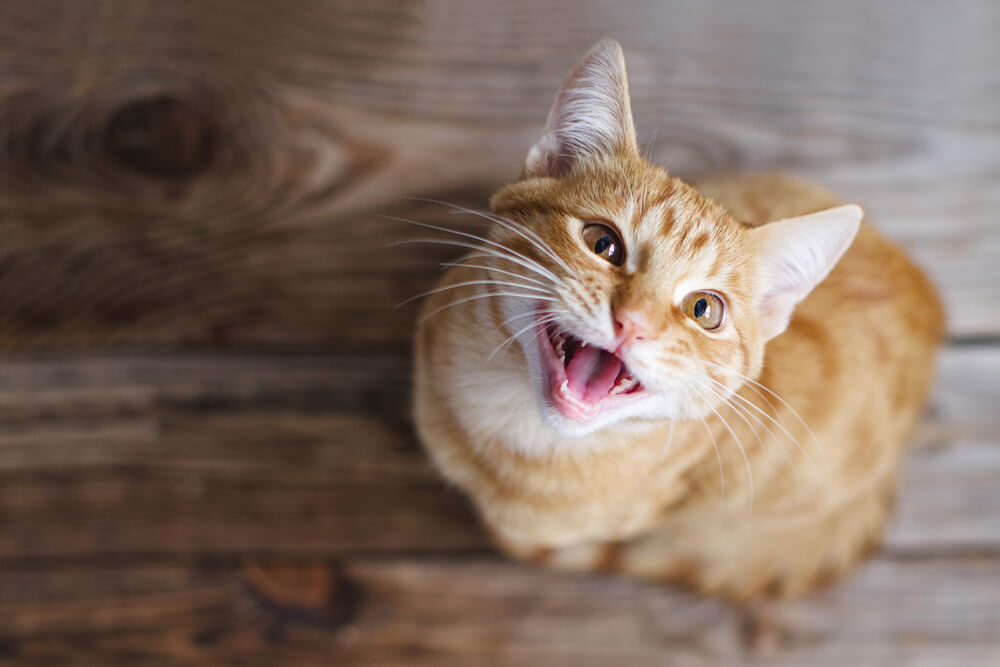
Cats are known for their quiet and sometimes unpredictable nature, so when your feline makes different sounds, it tends to get your attention.
Despite their reputation for being silent, cats can actually be quite vocal when they want to be. From meowing, purring, and yowling to hissing, they have a wide range of sounds that can leave you wondering, “What is that noise?”
Most of the time, your cat probably happily meows a greeting or purrs with contentment. However, sometimes a scream or a growl can be a cry for help. To help you understand what your cat is trying to say, we’ve outlined the most common cat sounds and what they mean below.
What are the different cat meowing sounds?
Meowing is a cat’s signature sound but of course, there isn’t just one standard meow, that would be too simple for our complex friends. While the exact meaning behind a meow can vary depending on the individual cat and breed, certain patterns and vocal characteristics are generally similar.
The standard meow
You’ll easily recognize this type of cat sound since it’s the one you hear most often! Typically, these meows are of medium length and pitch. When you listen to it, your cat is likely asking for something, and it’s up to you to determine what they need based on the context. 1
The mewl or short meow
If you’ve returned from a long day at work and your cat utters a brief meow, count yourself lucky as this is their way of saying hello. If your cat is especially excited to see you, they might offer you a series of these short mewls. It’s a good idea to respond with cuddles, play, or in whatever way your cat prefers to be loved.
High-pitched and low-pitched meows
A high-pitched meow sounds more like a scream which is exactly what it is and they could be in trouble. If you hear a high-pitched noise, check if your cat is OK immediately.
Whereas low-pitched meows express unhappiness and are a way of communicating that they aren’t happy with you. So, if your cat is groaning because you’re late with their dinner, you’re in trouble!
Purring
There’s nothing quite like the satisfying sound of the soft, deep rumble of a purr from your feline friend. You will likely hear this sound when petting your cat and they are eliciting pleasure. However, on rare occasions, purring is due to anxiety or stress. Note if your cat’s ears are back and their body is tense, this purr may indicate something more negative. Perhaps a visit to the vet may cause these sounds! We have more details on why cats purr here.
Cat chirps, trills, and chirrups
Cat chirps, trills, and chirrups? Sounds more like bird noises. Originally used by mothers to tell kittens to follow her, your cat may let out a chirp to get your attention. Alternatively, your cat might chatter, chitter, or twitter when staring out the window at squirrels or birds – it’s usually a sound of excitement. A sound is also made when they’re thinking of snack time…
The caterwaul
What is the caterwaul? Count yourself lucky if you don’t know what this sound is. Once you’ve heard the caterwaul, it’s hard to forget. A combination of a yowl, a howl, and a whine, the caterwaul is a melodramatic and persistent noise. It’s not a sound you want to hear from your cat and here are some reasons why they might be screaming:
- Your cat is in pain
- They are in heat
- Stress
- Claiming their territory
- Disorientation
If you hear this sound, it’s important to check on your cat immediately to ensure they are not in danger. If they appear stressed or disorientated, try to eliminate the source of their stress but this noise is mostly associated with a cat in heat who has not been neutered or spayed — yet another good reason to spay your cat.
Yowl
A yowl sounds like a long, drawn-out meow and can mean a number of things including:
- Hunger
- Attention seeking
- Boredom
- Mating call
- Pain
- Behavioral issues such as moving or separation anxiety
Should you ignore your cat yowling? You know them best. If you’re aware of your cat’s normal behaviors, you will be able to tell if it’s concerning or not. However, if your cat is excessively yowling and it’s having a negative impact on them, you, or the people around you, it would be best to consult the vet.
Growling and Hissing
Hissing often sounds aggressive or frightening, and it’s the noise cats make when they feel threatened, angry, or in pain. Cats usually hiss at other animals during territorial disputes or other arguments.
Hissing and growling are a cat’s way of saying “Leave me alone!” These sounds come with a puffed-up posture and flattened ears, acting as a warning to potential threats. Growls are low and rumbling, while hisses are sharp exhales with bared teeth. Both signals mean a cat feels scared, annoyed, or threatened. If your feline friend hisses or growls, it’s best to back off and remove the source of their discomfort.
However, if your cat is hissing without any apparent provocation, it could be a sign of illness or discomfort. Persistent, unprovoked hissing warrants a visit to the vet, as it may indicate that your pet is suffering from an undiagnosed condition.
We uphold the highest editorial standards when creating the authoritative content pet parents rely on and trust.
Every piece of clinical content on the Cat Food Advisor is reviewed by our certified Veterinary Advisory Board, which consists of licensed veterinarians and medically certified specialists.
Our reviews are completely independent; we are not paid by any pet food company to promote their products favorably. We do not accept money, gifts, samples or other incentives in exchange for special consideration. For more information see our Disclaimer & Disclosure page.




